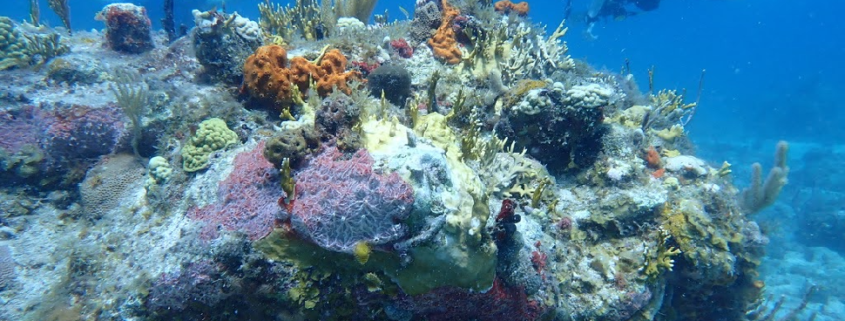
NSF NCAR Explorer Series Lecture “When the lobsters march north: From expensive models to collaborative solutions to save America’s coral reef”
When: July 24, 5:30-7pm
Where: NCAR Mesa Laboratory (and online)
We invite you to join us for a hybrid NSF NCAR Explorer Series lecture, “When the lobsters march north: From expensive models to collaborative solutions to save America’s coral reef” on Wednesday, July 24th from 5:30-7:00 pm (MT).
This event will be a live hybrid webcast with options to attend in person at the NSF NCAR Mesa Laboratory or virtually. Please register and tell us if you will be attending in person or online. This will allow you to receive the appropriate email reminders. If you’re attending virtually, an email will have the link to the webcast and details on how to participate.
Research Abstract
What is the future we want for America’s largest coral reefs? These delicate ecosystems support marine life and human endeavors, but climate change is threatening the existence of these natural, and human communities, alike. There are several climate models addressing marine life impacts, however the cost to run models is a barrier to the communities who need them most. Scientists are addressing this problem through a novel type of collaborative research, centering the voices of the people who depend on coral reefs for their livelihood. Metrics from the NSF NCAR Community Earth System Model version 2 large ensemble (CESM2-LE) will provide insight into what might happen to the coral reef ecosystem in the face of climate change. Together with the model metrics and insight from community members, this research will provide adaptation techniques that are meaningful to the local community.
In her Explorer Series Lecture, University of Wyoming Professor and NSF NCAR Visiting Scientist Kelly Dunning addresses the gap between the existence of expensive, high-resolution models and their utility for those who are seeing the most drastic effects of climate change on coral reefs. She will also discuss ongoing adaptation efforts, including livelihood shifts and novel restoration techniques.
Free public event for ages 12+










